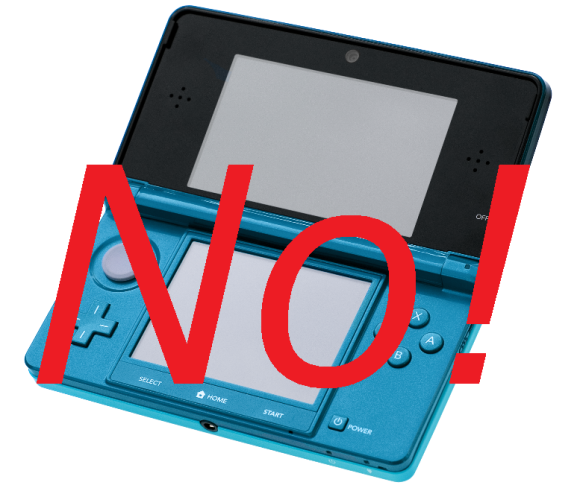
Compared to some other countries, video games enjoy a fairly high standing in Japanese society. Nintendo’s Mario is seen by many as not only a symbol of wholesome fun, but an example of how innovation and craftsmanship can lead to sustained economic prosperity. The world of Final Fantasy isn’t just a great setting for an epic quest, but for lunch or dinner, and some particularly stylish game characters even go on to leave their mark on real-world fashion.
Still, not everyone in Japan is a fan of video gaming. The Hokkaido Board of Education would rather see kids with schoolbooks or fishing poles in their hands than game controllers, and to that end is calling for parents to institute twice monthly No Game Days, and not just for the kids in the family.
In recent scholastic tests, students from Hokkaido, Japan’s rural, sparsely populated northern island, earned lower scores than the Japanese national average. Since the simplest tactic for obtaining high test scores is to throw more time at studying, the Board of Education figured some other activity must be taking time away from studying, and came to the conclusion that video games are one of the culprits.
▼ Seriously, did you know that hanging out with Professor Layton doesn’t count as lecture time? Dude’s not even accredited!
In response, the Board is asking households to declare the first and third Monday of each month No Game Days. The suggested restriction isn’t limited to kids with exams to study for, either, as the board is recommending that adults, too, abstain from playing video games on those days.
The Board made its statement earlier this week, which would make the first proposed No Game Day February 2. To help further bolster support for the practice, a number of local events are being planned for the preceding Sunday, with snow rafting and fishing activities scheduled in various parts of Hokkaido.
▼ Therein helping to ensure the island’s children all develop the genius-level intellects exclusively associated with fishermen.
Board member and Lifelong Learning Division head Shinsuke Asai described the initiative’s overall purpose as to “put in place a desirable lifestyle through distancing children from video games and increasing the learning experiences they have with their family circle and friends.” While the end goal itself is admirable, and many online applauded the decision to stage outdoor events on February 1, the No Game Day idea didn’t sit particularly well with gamers, who offered the following comments.
“Can’t they just make the school days longer?”
“I think the real problem is irresponsible parents.”
“Geez, this again?”
“They should take cell phones away from junior high and elementary kids before worrying about games.”
The last point is particularly telling, as it shows that video games are far from the only distraction children need to learn to resist and/or manage in order to thrive scholastically. Particularly as children enter their teens, they show an increasing interest in social media, which can consume just as much time as video games. The concept that restricting games twice a month, while leaving other hobbies unchecked, will result in superior test scores seems like wishful thinking, especially as it fails to take into account the child’s individual circumstances which would determine whether the first and third Mondays of the month are indeed the most appropriate days on which to drop the hammer.
Moreover, if one of the major goals of the No Game Day initiative is to increase the amount of time the family spends together, doesn’t that also necessitate restricting parents’ leisure activities that don’t contribute to their children’s mental development? There’s no point in formalizing a No Game Day for more family time without pairing it with a No Drinking with Coworkers Day or No Watching Trendy TV Dramas Recorded over the Weekend Day.
▼ Why aren’t you all fishing with your kids?!?
Actually, those sort of non-productive pastimes are probably holding adults back from reaching their societal potential just like video games keep kids from being all that they can be intellectually. Of course, the difference is that adults are supposed to have better time management skills and a stronger concept of moderation.
As we’ve seen before, though, reaching legal adulthood doesn’t magically provide you the gift of intelligence or even basic common sense. Time management skills are something that have to be learned through practice and actual use. Just surviving until they graduate from high school won’t teach kids how to manage their time, especially if they’ve been coddled until then with blanket restrictions that remove personal responsibility from the equation.
Source: NHK, Hachima Kikou
Top image: Wikipeda/Evan-Armos (edited by RocketNews24)
Insert images: Wikia, eBay, Goo Girl